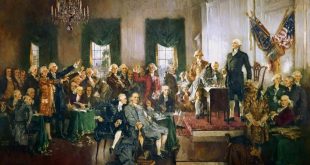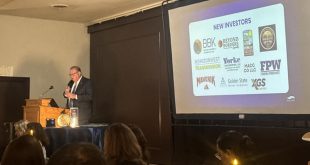 -Editorial
-Editorial
ABC’s recent decision to suspend Jimmy Kimmel Live! and remove the program from its broadcast schedule indefinitely has ignited a storm of debate about free speech, media independence, and the increasing politicization of entertainment platforms. The suspension came after Jimmy Kimmel’s on-air commentary regarding the tragic murder of conservative activist Charlie Kirk, during which he criticized President Donald Trump’s response to the incident. While the network frames its decision as a response to allegedly “offensive and insensitive” remarks, the broader implications raise urgent questions about the state of press freedom in the United States and the pressures major media corporations face under a politically charged environment.
The immediate trigger for ABC’s action was a segment from Monday’s monologue, in which Kimmel addressed Trump’s response to Kirk’s death. Kimmel’s critique, blending satire and pointed commentary, highlighted what he perceived as the president’s dissonance between a public expression of grief and a focus on White House renovations. Kimmel quipped, “Yes, he’s at the fourth stage of grief, construction. This is not how an adult grieves the murder of someone he called a friend. This is how a 4-year-old mourns a goldfish.” He further speculated that the president’s fixation on renovations might be a diversion from other controversies, joking, “by the time he’s out of office, the White House will have slot machines and a water slide.”
While Kimmel extended condolences to Kirk’s family, his pointed criticism of Trump’s behavior ignited immediate backlash from broadcasters and political allies. Nexstar Media Group, which operates more than 200 television stations nationwide, announced that its ABC affiliates would preempt the show, citing concerns about Kimmel’s “offensive and insensitive” remarks. Sinclair Broadcast Group, the nation’s largest operator of ABC affiliates, echoed the criticism and suspended the program across its stations, replacing Friday’s broadcast with a tribute special for Kirk. Sinclair further demanded that Kimmel issue a direct apology to Kirk’s family and contribute to the family and to Turning Point USA, the organization Kirk founded.
These decisions were framed as a response to public sensitivity and corporate responsibility. However, the timing and context suggest a deeper, more troubling trend. The Federal Communications Commission (FCC), under Chair Brendan Carr, had hinted at potential scrutiny of Disney’s broadcast license. Critics argue that such regulatory pressure, when coupled with statements from powerful political figures, creates an environment in which media outlets may preemptively censor voices that could provoke controversy.
President Trump reacted to the suspension on social media, framing it as a victory and disparaging Kimmel’s talent and ratings. While such commentary is not unusual for the president, it underscores the high stakes and politicized nature of broadcast decisions. What is deeply concerning is that such reactions may incentivize networks to limit critical coverage or commentary to avoid regulatory scrutiny, public backlash, or political retaliation.
The suspension has prompted swift pushback from prominent figures in the entertainment and media sectors. California Governor Gavin Newsom decried the action as a “coordinated effort to silence critics and free speech.” Late-night hosts, including Stephen Colbert and Conan O’Brien, have publicly expressed solidarity with Kimmel. Colbert emphasized that the administration’s influence over media extends beyond individual shows, warning that censorship often begins with seemingly isolated cases before expanding to broader attacks on critical voices. O’Brien similarly noted that the suspension should alarm individuals across the political spectrum, asserting that attempts to silence critique are fundamentally at odds with democratic values.
Beyond television hosts, writers and creators have also joined the chorus of criticism. The Writers Guild of America West and East issued a joint statement condemning the suspension, calling it a threat to free expression. “The right to speak our minds and to disagree with each other – to disturb, even – is at the very heart of what it means to be a free people,” the statement read. “Silencing us impoverishes the whole world.” The statement reflects a broader concern that media creators may face pressure not only from corporate executives but also from political actors who wield regulatory power as leverage.
Hollywood figures have added their voices, demonstrating the far-reaching implications for the entertainment industry. Damon Lindelof, creator of ABC’s Lost, declared that he would refuse to work with the company if Kimmel’s suspension is not reversed. Tatiana Maslany, star of Disney+’s She-Hulk: Attorney at Law, urged her followers to cancel subscriptions to Disney-owned platforms in protest. These reactions suggest that the Kimmel suspension has resonated not only within media organizations but also among creative talent whose livelihoods depend on platforms increasingly influenced by political considerations.
Media analysts have highlighted potential corporate motivations behind such decisions. For instance, CBS’s cancellation of Stephen Colbert’s show has been linked to corporate mergers requiring FCC approval, demonstrating how regulatory and political pressures can intersect with corporate interests to shape content and programming decisions. The underlying message is clear: media executives are navigating a landscape where financial, regulatory, and political stakes are increasingly intertwined, often at the expense of independent expression.
This episode occurs within a broader, deeply troubling context, with the killing of Charlie Kirk itself, who was reportedly targeted because of his views and outspoken criticism on matters of public interest. The attack highlights a stark reality: speaking truth to power in today’s climate carries unprecedented risk. While past presidents have clashed with the press—John Adams with the Sedition Act of 1798, Abraham Lincoln shutting down newspapers during the Civil War, Woodrow Wilson imprisoning critics under the Espionage and Sedition Acts, and Richard Nixon targeting journalists over the Pentagon Papers—none consistently labeled the press as “the enemy of the people.” For the first time in modern U.S. history, a sitting president has made hostility toward the free press a central pillar of leadership. This is not only unprecedented; it is profoundly dangerous for the health of American democracy.
The Kimmel suspension raises profound questions about the boundaries of satire, the role of media corporations in safeguarding free expression, and the influence of political power on cultural discourse. Satire has historically served as a crucial mechanism for critique in democratic societies, allowing public figures to be held accountable in a manner that is both entertaining and incisive. By punishing hosts like Kimmel for engaging in pointed commentary, networks risk chilling this vital form of expression.
Furthermore, the incident underscores the fragility of First Amendment protections in the context of corporate media. While government censorship remains illegal under the Constitution, indirect forms of influence—regulatory threats, political pressure, and corporate self-censorship—pose equally serious risks. In this context, the suspension is more than a response to a single monologue; it is indicative of a broader tension between political power, corporate interests, and journalistic freedom.
The broader implications extend beyond late-night television. If high-profile hosts can be suspended for political commentary, what protections remain for journalists, writers, and content creators who challenge authority? How can media companies maintain editorial independence when faced with potential regulatory scrutiny or political retaliation? And perhaps most importantly, what precedent does this set for the public’s right to hear critical perspectives on those in power?
ABC’s suspension of Jimmy Kimmel Live! is a stark reminder that free speech, even in its most mainstream forms, is vulnerable to political and corporate pressures. While networks have a responsibility to their audiences and shareholders, this incident illustrates the dangerous territory that emerges when entertainment, politics, and regulation collide. Protecting satire, critique, and dissent is not merely a cultural concern—it is a democratic imperative. The voices of writers, comedians, and journalists must be defended, lest the public be left with a media landscape increasingly shaped not by the truth or the public interest, but by fear of reprisal.
The suspension of Kimmel’s show, in the context of threats to commentators like Charlie Kirk, is a critical moment for reflection on the state of free speech in America. It should prompt media executives, creators, policymakers, and the public to consider the consequences of silencing voices, whether through direct censorship or the subtler mechanisms of corporate and political influence. In defending the right to critique, even harshly, society reaffirms the foundational principle that freedom of expression is essential to an informed, vibrant, and resilient democracy.


